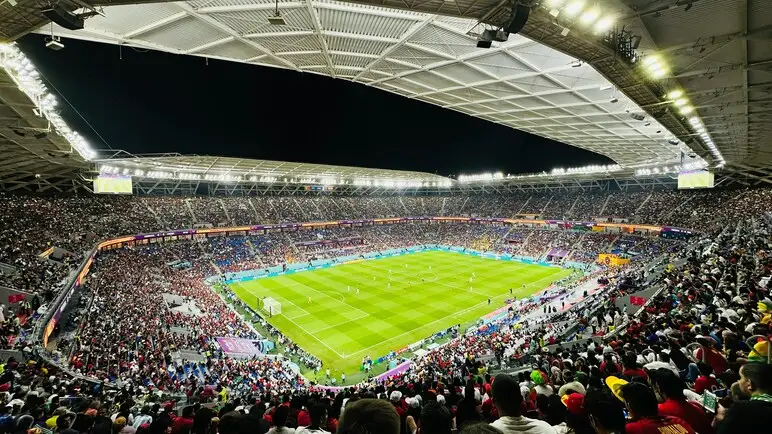
The FIFA World Cup will unfold across an unprecedented canvas: three countries, sixteen cities, and one unforgettable tournament in the summer of 2026. For the first time in history, Canada, the United States, and Mexico will co-host the world’s most beloved sporting event—transforming North America into a month-long celebration of football, culture, and global connection.
It’s not just a tournament. It’s an invitation to explore a continent, city by city, goal by goal. So, no, it’s not just about being there for the final whistle! The 2026 FIFA World Cup offers something rare: the chance to see the world through the lens of sport, and to experience three countries in one incredible summer.
When and where it all begins
The 2026 FIFA World Cup kicks off on Thursday, 11th June, with the opening match held at Estadio Azteca in Mexico City, one of football’s most legendary stages. Over the following weeks, 48 national teams will compete in the largest World Cup to date, culminating in the final match at MetLife Stadium in East Rutherford, New Jersey, on Sunday, 19th July.
With more matches, more cities, and more stories than ever before, this World Cup is poised to be unlike any that’s come before.

The cities hosting the world
Sixteen cities across the three host nations will welcome fans from every corner of the globe. Each offers its own rhythm, flavour, and way of celebrating the game.
In Mexico, the tournament opens in Mexico City, a sprawling cultural capital where ancient temples stand beside contemporary galleries and high-design hotels. Estadio Azteca, in the southern part of the city, is easily reached by car or rideshare. For a well-rounded stay, look to neighbourhoods like Roma and Condesa featuring walkable enclaves of tree-lined streets, art deco facades, and standout restaurants.
In the United States, matches will be held in 11 cities from coast to coast. MetLife Stadium is technically located in East Rutherford, New Jersey, but most visitors will base themselves in Manhattan, where direct trains provide easy access to the venue. Los Angeles’s SoFi Stadium offers a sun-soaked West Coast option, with accommodations ranging from the beachy calm of Santa Monica to the nightlife and convenience of Downtown LA. AT&T Stadium in Arlington sits between Dallas and Fort Worth, with both cities offering their own take on Texan hospitality.
Moreover, Toronto and Vancouver will serve as hosts in Canada. Toronto’s BMO Field is a short ride from Union Station, the city’s central transit hub. Vancouver’s BC Place is tucked right into downtown, surrounded by seawall paths, trendy eateries, and postcard views of the Pacific.

Getting around the continent
The challenge and the charm of this World Cup lie in its scale. Host cities are often separated by thousands of miles, making air travel the most practical option for most. Fortunately, North America’s major cities are connected by a robust network of domestic and regional flights.
That said, regional travel clusters do exist. New York, Philadelphia, and Boston are just hours apart by train. Dallas, Houston, and Kansas City can be reached easily by air in under two hours. In Mexico, affordable domestic flights and long-distance buses connect Mexico City, Guadalajara, and Monterrey.
How to get tickets
Ticket sales begin on 10th September 2025, with an exclusive application window for Visa cardholders who have registered with FIFA’s official ticketing system. This first phase is handled through a randomised draw.
Those selected will be granted a purchase window in October. Later rounds will gradually open to the general public, with ticket sales shifting to a first-come, first-served model by early 2026. Closer to the tournament, FIFA will also launch a verified resale platform for fans to buy and sell tickets at face value.
For those seeking a more elevated experience, hospitality packages are already available through FIFA’s official partner, On Location. These range from single-match VIP access to more immersive packages that follow a team through multiple games or offer full access to a city’s slate of matches. The packages often include premium seating, gourmet dining, and private lounges, creating a luxury sports experience with all the perks—though flights and accommodation remain separate.
Entry-level tickets for group-stage matches will start at US$60. At the other end of the spectrum, tickets for the final match are priced at US$6,730. These prices represent FIFA’s initial release, with the possibility of increases over time.
In its official statement, FIFA explained that the new pricing strategy is designed to encourage early purchases—the sooner fans secure their seats, the better the deal. It's a model intended to reward planning ahead and create a more accessible pathway for fans to attend the world’s biggest sporting event.
One ticket, one match
Standard tickets are match-specific. If you're planning to see multiple games, you’ll need to purchase each one individually. However, FIFA’s bundled hospitality options offer more flexibility and convenience. The “Venue Series” package allows fans to attend several matches within a single host city, while the “Follow My Team” option lets you shadow your national team through the group stage and beyond, wherever they go.
These packages often include perks such as exclusive lounges, concierge support, and in-stadium dining. While they don’t cover travel or accommodation, they do offer a seamless experience for those who prefer to focus on the game, not the logistics.



 Mirella Pandjaitan
Mirella Pandjaitan
 Sep 15, 2025
Sep 15, 2025